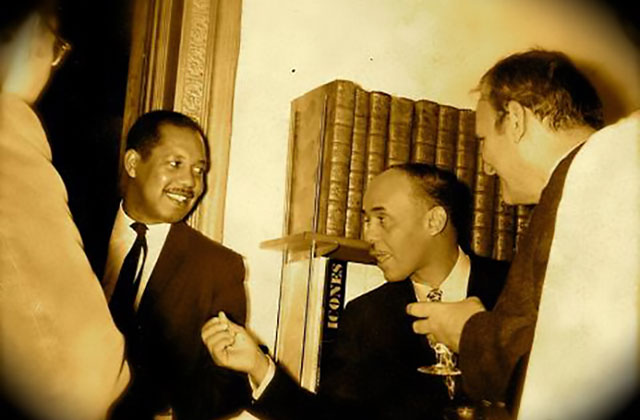Ernest J. Gaines, the author of nine novels, including “The Autobiography of Miss Jane Pittman,” died on Tuesday (November 5) at age 86. Per the University of Louisiana at Lafayette, where Gaines was writer-in-residence emeritus, he passed away at his home with his wife Dianne Gaines nearby.
The Louisiana-native was the first person from his state to win the Humanist of the Year Award, and he was also a MacArthur Fellow and a National Medal of the Arts recipient. His works have been translated into more than 14 languages. The fictional story of “Miss Jane Pittman,” who lived through slavery and the 1960s Black Power movement, is described as the “first neo-slave narrative and was required reading in French schools,” according to UL Lafayette, where the Ernest J. Gaines Center stands as an international research center and archive dedicated to preserving Gaines’s works. It was also turned into the award-winning 1974 television film that earned Cicely Tyson two Emmy Awards for her portrayal of the main character.
Having grown up on a plantation, Gaines was acutely attuned to the lived experiences of Black folks in the rural South. He tapped that experience in his first novel, “Of Love and Dust,” which centered a young Black man who was released on a bond for a murder accusation and then sent to work the fields. “When I brought my young killer to the plantation, I knew the kind of house he would have to live in; I had lived there 15 years myself,” Gaines said in “Conversations With Ernest Gaines,” The New York Times reported. “I knew the kind of food he would eat; the same kind that I had eaten. I knew the kind of clothes he would wear, because I had worn the khaki and denim clothes myself. I knew the work he would have to do.”
And he also knew what it took to craft a great story. “If a book doesn’t have form, then damn, it ain’t no novel,” he told The Times in 1978. “We can go down the block right now and find a guy on the next corner who’ll tell the biggest and truest story you can ever hear. Now, putting that story down on paper so that a million people can read and feel and hear it like you on that street corner, that’s going to take form. That’s writing.”
To learn more about Gaines’s legacy, watch a video below, courtesy of the National Endowment for the Arts:
